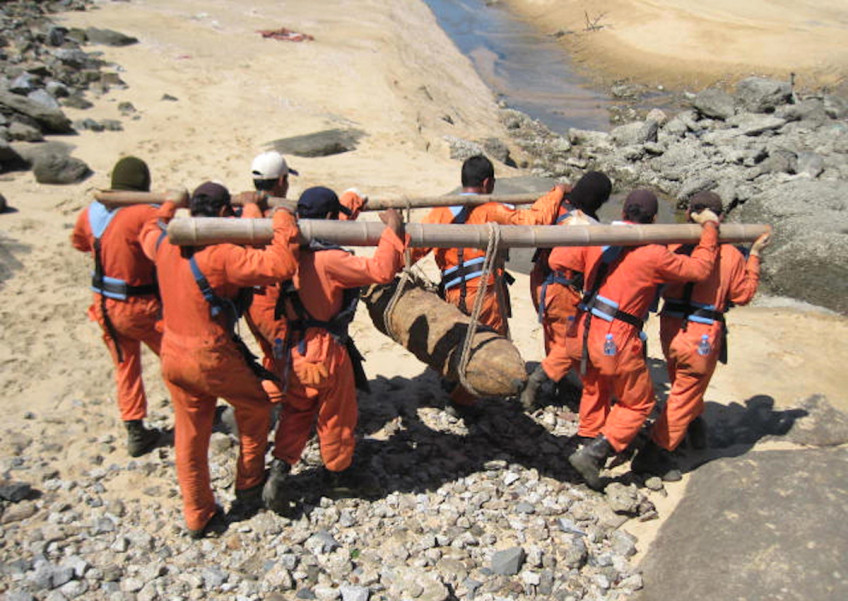Confessions of a bomb disposal contractor

He has cleared about 9,000 bombs and landmines around the world, potentially saving thousands of lives.
While each job comes with considerable risk, Michael (not his real name) does not want any public recognition for his efforts.
Each time the 55-year-old explosive ordnance disposal (EOD) technician comes home safely from war-ravaged countries, all he asks for is a celebratory dinner with his wife and two children.
Michael, who has about 25 years of experience, says: "My friends all say that I am crazy, that it is too dangerous a job to do.
"But I love it for the thrill... It involves blowing things up."
Michael is one of a handful of Singaporeans pursuing a private bomb disposal career, and his clients include overseas governments and the United Nations. Due to security reasons, he cannot be identified.
As an EOD technician, his job entails identifying unexploded munitions, such as anti-personnel mines or war relics, before figuring out how to dispose of them safely.
That means he or his team will have to walk right up to a bomb, which could be still active, in a bomb suit.
"It is always scary, but as long as you know what you are doing and (you're) not overconfident, you'll be okay," says Michael.
He recalls his first bomb call in the 90s when he was an army regular in the 36th Singapore Combat Engineers (36 SCE).
As he approached a bomb that had been found at a construction site, he froze when he heard a strange, shrill sound.
Michael says: "I thought it came from the bomb. It turned out the sound was made by the air coming from my boots."
FAR-FLUNG
He joined an American de-mining company in 2009 after leaving the army. The job takes him to far-flung places in Africa and the Middle East, and sometimes even while a war is going on.
Stories of death and destruction are the norm in these places.
Once, he watched helplessly when a man got blown up in an artillery attack while he ducked for cover at the coalition base at Kandahar Airfield in Afghanistan.
In Sudan, he heard horrific tales of children getting killed or maimed by anti-personnel mines that were left behind during the country's civil war.
He and his team also found and cleared more than 5,000 air-dropped bombs in the Kinmen Islands, which is claimed by China and Taiwan.
But the strangest bomb he has encountered wasn't in a war zone. It was right here in Singapore, made by a debt collector, says Michael.
"He compressed numerous crushed matches together in plaster, placed it in a plastic bag and hung it at the door of someone's home. It was meant to injure the debtor when he opened the door... But the bomb did not go off."
The debt collector was eventually arrested by the police.
Having witnessed the destruction and long-term effects that landmines can cause, Michael is a strong advocate against their use.
His pet peeve is that Singapore is yet to sign a 1997 treaty to ban the manufacture and use of landmines, even though it has banned their export to other countries.
Singapore is one of 35 countries, including the US, China and Russia, which has not signed the treaty.
Singapore's position is that while the Government is against indiscriminate and irresponsible use of landmines, "the legitimate security concerns and the right to self-defence of any state cannot be disregarded".
Michael disagrees: "I am totally against the use of landmines because they can last long after conflicts end. Unfortunately, I'm disappointed that my own country is still producing them."
SECRETS OF THE TRADE
Pay attention to every safety briefing. Negligence can cost lives.
To avoid loss of concentration or fatigue, never work for more than six hours and make sure your team gets enough rest.
Start out by gaining valuable EOD skills in 36 SCE, Singapore's only land-based bomb disposal unit.
ngjunsen@sph.com.sg

This article was first published on Oct 11, 2015.
Get The New Paper for more stories.